- California Assembly OKs highest minimum wage in nation
- S. Korea unveils first graphic cigarette warnings
- US joins with South Korea, Japan in bid to deter North Korea
- LPGA golfer Chun In-gee finally back in action
- S. Korea won’t be top seed in final World Cup qualification round
- US men’s soccer misses 2nd straight Olympics
- US back on track in qualifying with 4-0 win over Guatemala
- High-intensity workout injuries spawn cottage industry
- CDC expands range of Zika mosquitoes into parts of Northeast
- Who knew? ‘The Walking Dead’ is helping families connect
That’s a lot of Bibimbap!
12,013 Servings Mixed for ‘Hansik Day’ in Korea
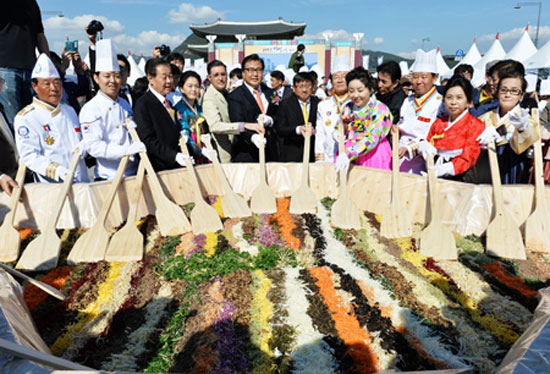
Park Jin, fifth from left, president of the Asia Future Institute, poses with Peter Tan, sixth from left, the Singapore ambassador to Korea in a “bibimbap” mixing event held at Gwanghwamun Square, Wednesday. They are joined by Park Mi-young, fourth from right, promotional ambassador for Korean Food; James Person, fifth from left, a researcher at the U.S. Wilson Center; Kim Chae-yeon, fourth from left, Hansik promotional ambassador; and Kim Choong-yong, third from left, former councilor of Jongno-gu, Seoul. / Korea Times photo by Shim Hyun-chul
By Kim Ji-soo, Chung Hyun-chae
By preparing “bibimbap” to feed 12,013 people, former lawmaker Park Jin and officials of the food industry want to go one step further in promoting Korean food.
“By designating Hansik Day, Korean people can renew their affection towards traditional Korean food, which we take for granted every day,” said Park, president of the Asia Future Institute at the event on Oct. 23. Park also heads the committee to establish a “Hansik Day,” on Oct. 10, and works with the Korean Food Association and the Korean Food Cultural Foundation.
“We need Hansik day,” said Kang Dae-hun, the association’s manager, stating that it will help promote Korean food to the world. The committee is expected to launch a campaign to gather 1 million signatures.
At the bibimbap event chefs of all age groups mixed rice with vegetables brought from the eight provinces of Korea in huge, long containers. Three Germans who came over by chance said the event was interesting. “I think Korean food has the potential to be globalized as it has a special taste which is different from other Asian cuisine as far as I know. For example, naengmyeon, cold noodles, was very unique to me as I had never heard of it before in Europe,” said one who attends Seoul National University.
Alongside the bibimbap event, the organizers showed off a diverse range of Korean food ― festival food, royal court cuisine, North Korean food, temple food and regional specialties as well as snack and street foods. The food was provided for free to visitors in a number of booths on Gwanghwamun Square.
Rabia Yorganci, a Turkish engineer at a manufacturing company, said, “I’m just looking around and surprised at everything I see.”
The declaration of Hansik Day would help Korea promote the genuine value of Korean food, but along with the food, Korea would be able to demonstrate the qualities of its attire, “hanbok,” architecture or “hanok” as well as Korean crafts, Park said.
This first event for Hansik Day was operated by donations from diverse sectors. “This was a bottom-up event, whose main body is Korean-food chefs, not imposed top-down,” said Kang Seok-hong, head of Korean Food Association. “This must not be a one-off event. We ultimately aim to establish World Hansik Day and hope it will take a leading role in hallyu.”







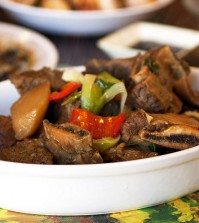
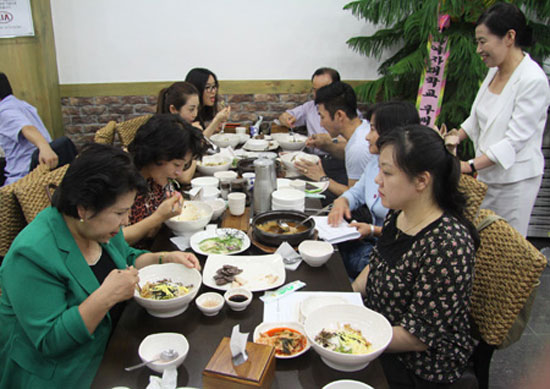
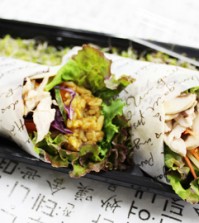
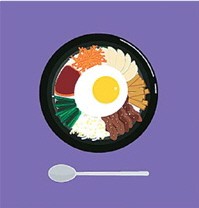

![일본 사도광산 [서경덕 교수 제공. 재판매 및 DB 금지]](http://www.koreatimesus.com/wp-content/uploads/2024/07/PYH2024072610800050400_P4-copy-120x134.jpg)


